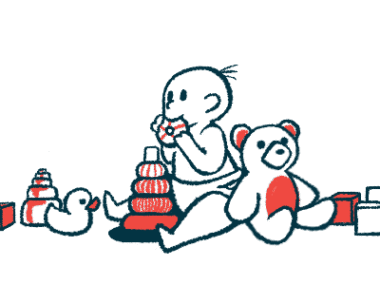Anti-seizure Therapy NT102 Wins FDA’s Orphan Drug Status
Written by |

The U.S. Food and Drug Administration (FDA) has granted orphan drug designation to Neuroene Therapeutics‘ NT102, a potential anti-seizure therapy for Dravet syndrome.
NT102, given orally, has been shown to prevent seizures in several animal models, with “excellent protection” against such attacks in Dravet syndrome, according to Neuroene.
Orphan drug status is awarded by the FDA to encourage the development of therapies for rare and serious diseases, through benefits such as seven years of market exclusivity upon approval and exemption from regulatory application fees. In the U.S., a rare disease is defined as a condition affecting fewer than 200,000 people.
“This is an exciting development for Neuroene Therapeutics, and patients and families of those suffering Dravet syndrome,” Sherine Chan, PhD, and James Chou, PhD, co-founders of Neuroene, said in a press release.
In preclinical studies, funded by the National Institutes of Health, NT102 was well-tolerated and successfully reached the brain, according to Neuroene.
That often is a limitation for oral therapies, as they need to be maintained at a certain concentration to be able to reach the brain, which is shielded from the rest of the body by a semi-permeable membrane called the blood-brain barrier.
Researchers at the University of Utah’s anticonvulsant drug development program (ADD), collaborators of Neuroene, conducted preclinical studies to test the efficacy of NT102 in a Dravet mouse model.
Specifically, the mice were genetically engineered to carry a mutation in the SCN1A gene, the cause of about 80% of Dravet cases. These mutations lead to the production of a nonfunctional alpha subunit of NaV1.1., a sodium channel found on the surface of nerve cells and involved in the transmission of electrical signals in the brain.
These mice show disease features similar to human patients diagnosed with Dravet, including heat-induced seizures and spontaneous recurrent seizures.
Combinations of FDA-approved antiseizure medicines have been shown to be effective at reducing seizures, according to Neuroene. But the company said its findings show NT102 could effectively reduce seizures as a single agent.
These findings also support the potential benefits of NT102 for other epileptic-related diseases, the researchers said.
“We could also apply our compounds to more broad-spectrum epilepsies in the future, as they are efficacious in many animal models of medication-resistant seizures,” Chan and Chou said.
“But we now have a new potential treatment for Dravet syndrome,” the pair said.






